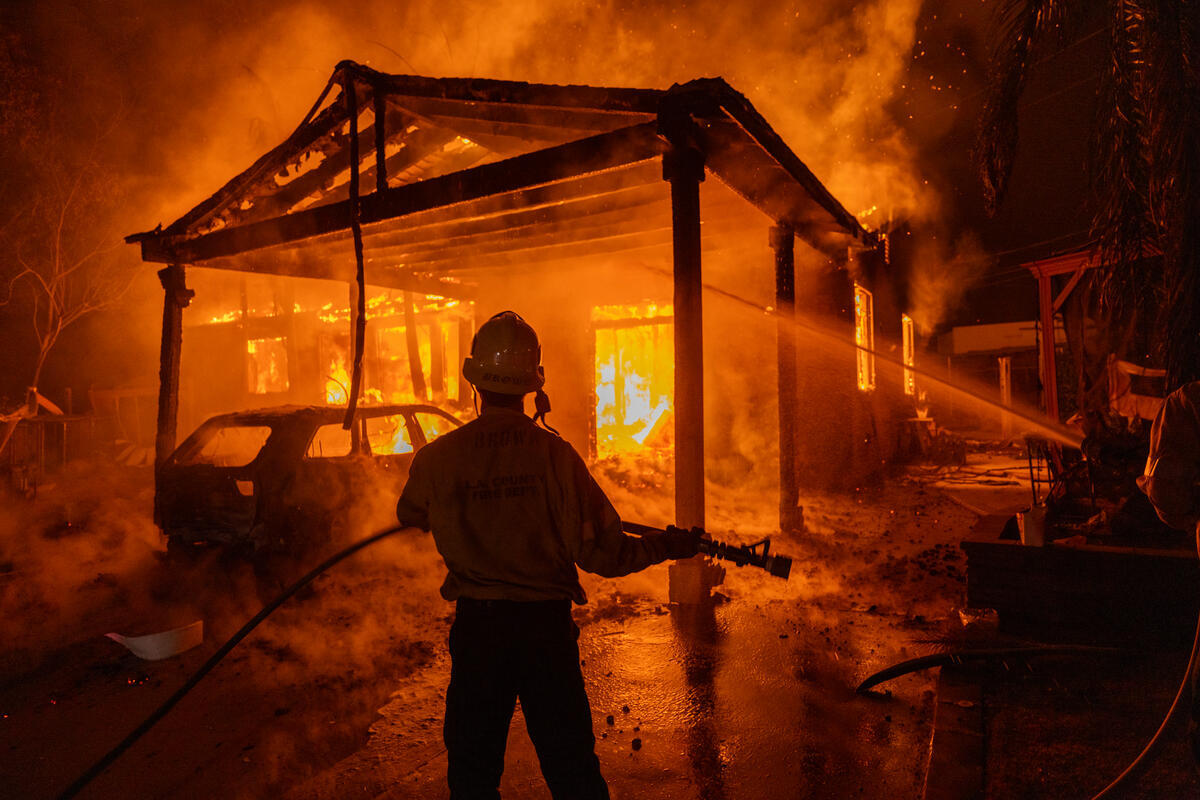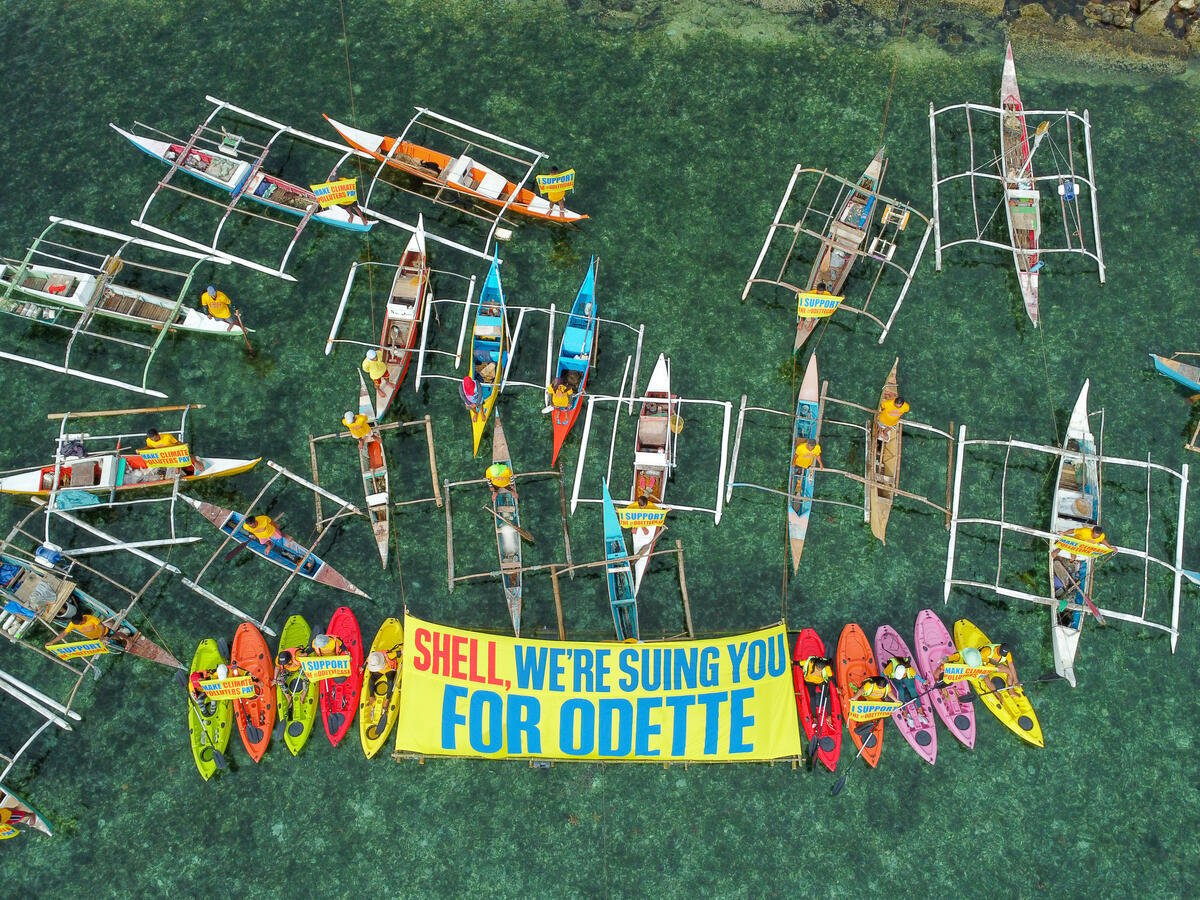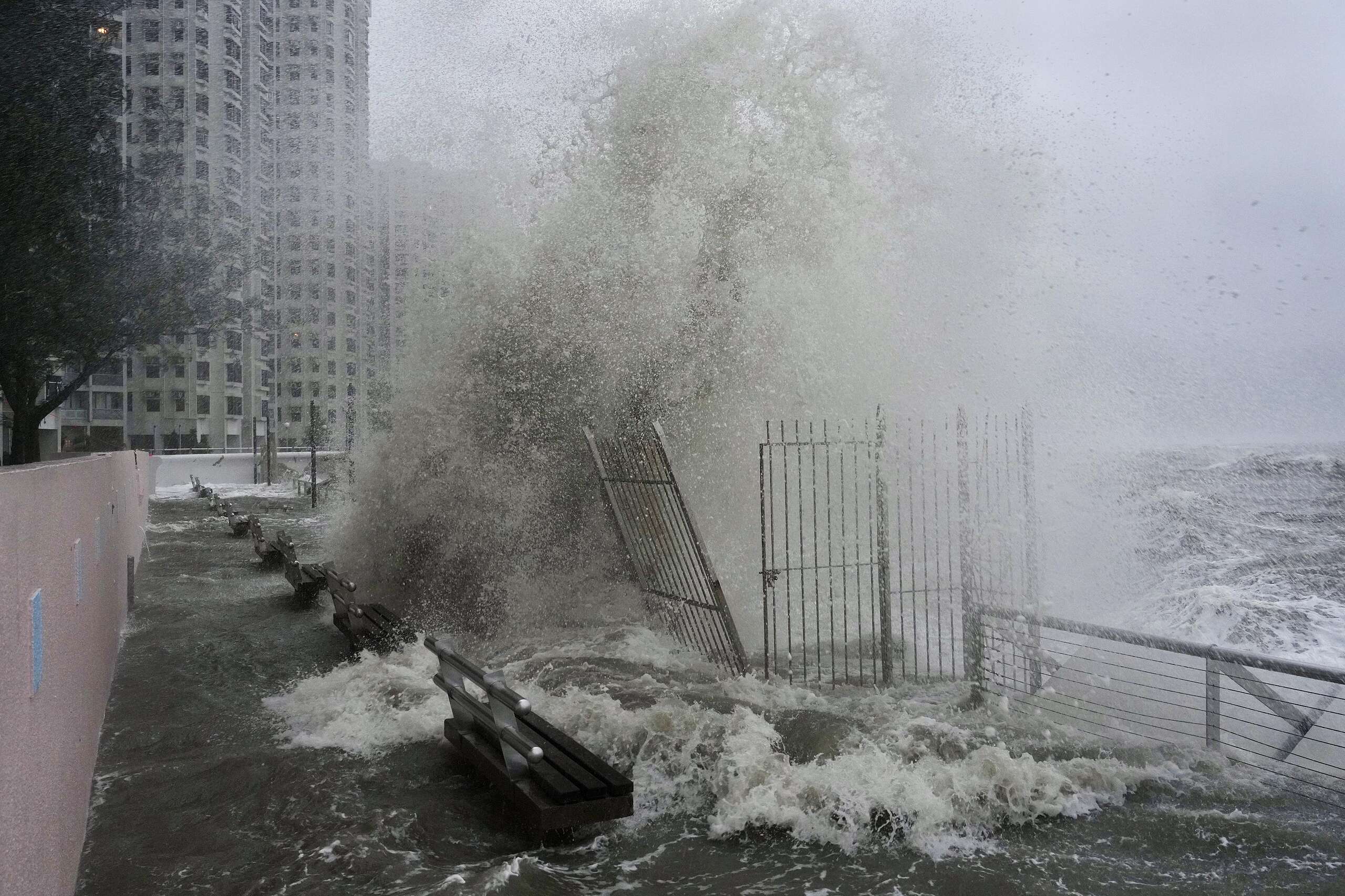While world leaders rode on their private planes to Brazil to attend COP30, there is a 16-year-old in the town of Pandan in Catanduanes, Philippines, frantically texting her teacher that she could not attend class the next week. This, after their house got flattened by Super Typhoon Uwan’s (Fung-Wong) 185-kph winds that blew through the island last November 10. Her family lives along the coast of the island and had to evacuate in the middle of the typhoon in fear of storm surge. They came back to their house when the winds started to dwindle, but Uwan wasn’t done yet. As the last gales of the typhoon whipped, their roof flew away and they were left with no choice but to wait out the storm without cover. When it was finally over, their house was no more.
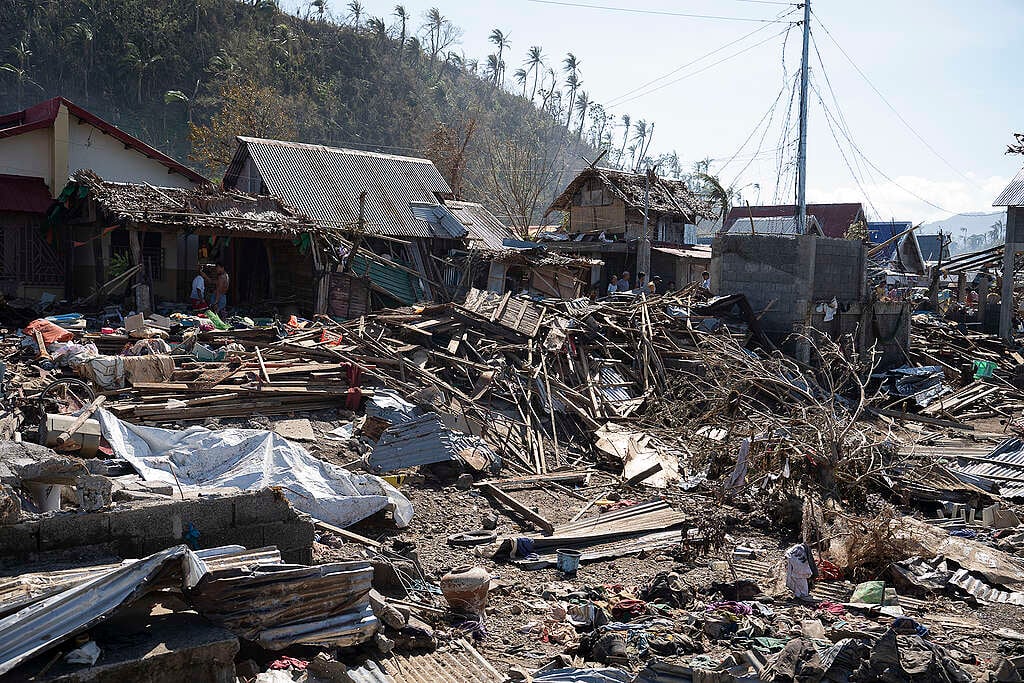
For the people of Catanduanes, stories like these are normal. Extreme weather is deeply intertwined in our lives, and we have grown accustomed to the neverending cycle of destruction and rebuilding; of preparing for the worst and accepting the reality that typhoons will come, no matter how much we pray that they don’t. In 2020, there was Rolly (Goni), in 2024 Pepito (Man-yi), this year, Uwan. In the next years, more typhoons with names to be remembered in fear.
When the Loss and Damage Fund was operationalized during last year’s COP29, and the Philippines named chair of the board months later, it felt like hope. Finally, we have funding for the climate vulnerable communities who face the worst extreme weather events. But the development is slow. World leaders are still arguing over who should pay for what and oil executives are still denying liability while a growing population is scrambling to survive this fossil fuel-caused climate chaos.
For Filipinos, the issue of climate funding is especially relevant now. This year’s rainy and typhoon seasons uncovered billions of dollars worth of corruption. Controversial flood control projects that were never finished or done with poor quality despite an over budget have been the cause of anger and sparked a series of protests across the country. Just a week before Uwan entered the Philippines, the provinces of Cebu and Negros were badly hit by Typhoon Tino (Kalmaegi) and hundreds have died due to severe flooding. Locals are blaming faulty flood control infrastructure and lack of leadership.
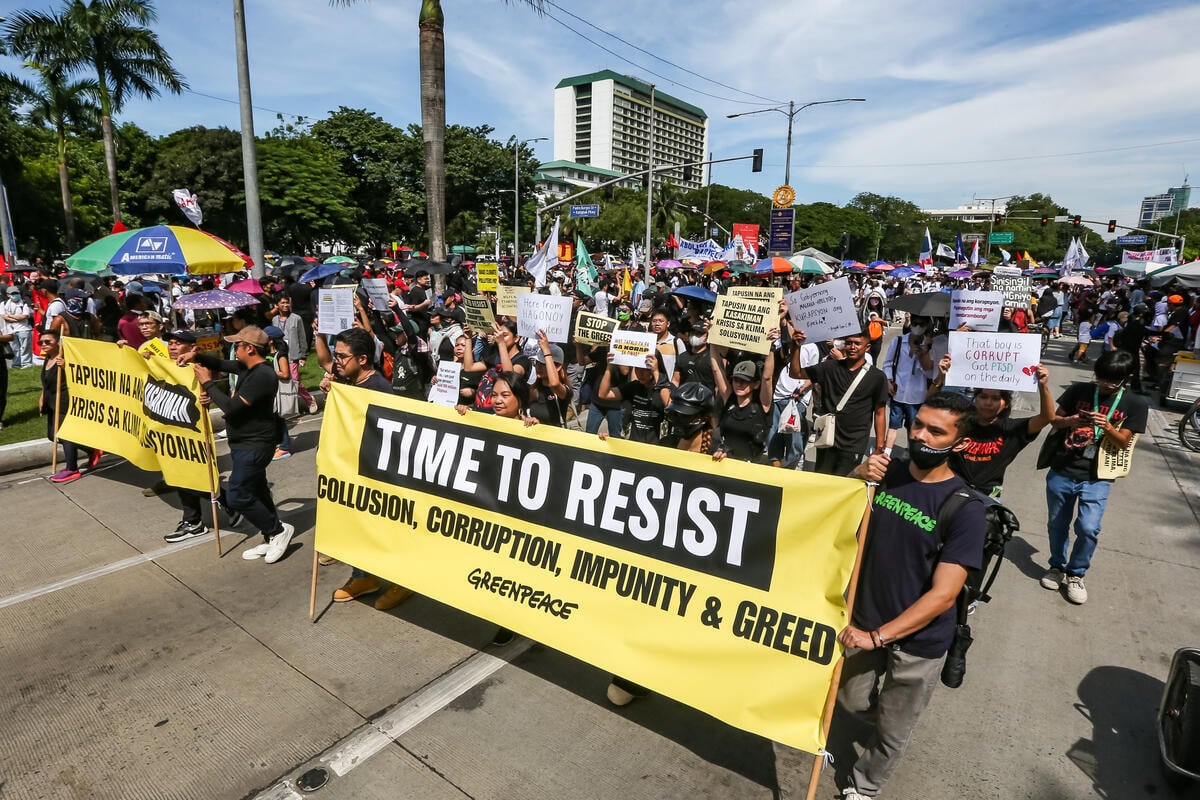
The broad strokes of climate action happen in climate conferences like COP, where big decisions like the creation of the Loss and Damage Fund or the Paris Agreement happen. But these big plans feel distant to the plight of those living in vulnerability. Every year in COP, we see wealthy carbon emitting nations and their Big Oil friends try to rid themselves of responsibility; meanwhile children in far-flung islands are crying amidst their ruined homes.
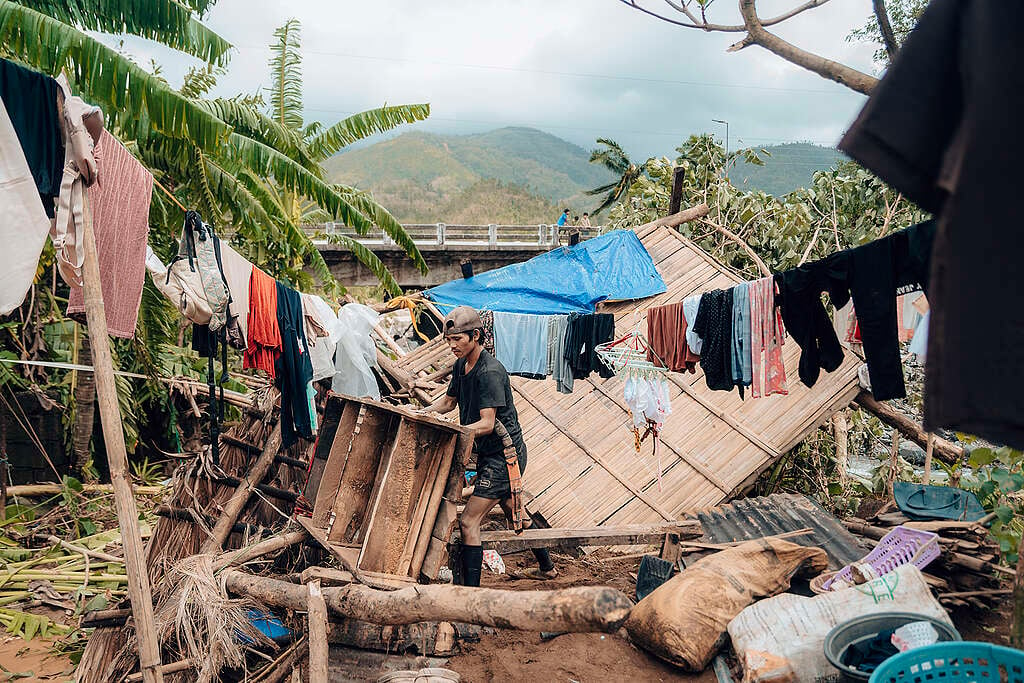 © Khelmer Dan Teocson/ Greenpeace
© Khelmer Dan Teocson/ GreenpeaceOver the course of Uwan’s 7-hour rampage, I found myself staring at the coconut tree in my backyard. This sturdy and towering tree, an icon for strength and function for Filipinos, swaying with the wind while staying rooted to the ground. The many disasters that hit the Philippines have made us resilient just like this tree, but with this innate need to survive came an acceptance that there is nothing else that can help us but each other. Every year we are failed by the greed of those who profit from ruining the planet, and we are left to fend for ourselves when calamity hits. We are tired of rebuilding our lives, but what else can we do but try to survive?
As negotiations for COP30 begin, we can only hope that our leaders remember the people who are living the reality that they deem hypothetical. The people who, despite not understanding the intricacies of global talks, know that typhoons are becoming fiercer every year, and are growing weary of fighting to survive. Those who stand to represent us should be reminded that the climate crisis does not know borders or wars — what affects us, affects everyone. And while our typhoon-stricken lives may seem so far removed from the looming halls of government buildings and corporate towers, may they be reminded that we live on the same planet and there is nowhere else for us to live but here.
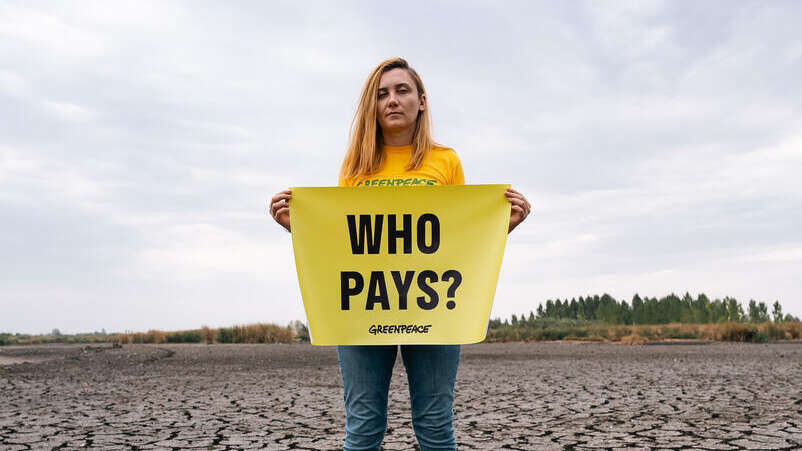
Sign the pact, record your story. Join the global movement to make polluters pay.
Join the movement
